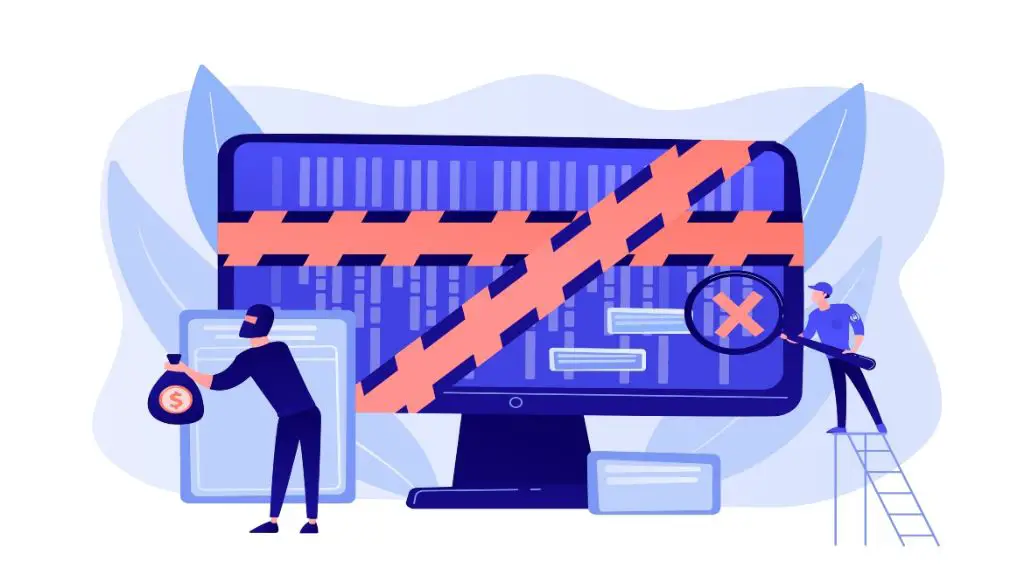Digital forensics is a growing and lucrative field. With the increase in cybercrime and the need for legal evidence from digital sources, there is a huge demand for qualified digital forensics experts. But how much money can you actually make in this career? Here is an in-depth look at digital forensics salaries and job prospects.
What is digital forensics?
Digital forensics, sometimes known as computer forensics, involves investigating and analyzing digital data and devices in a legal context. The primary goal is to collect, preserve, and present digital evidence that can be legally admissible in court or other legal proceedings. This evidence is often crucial for investigating cybercrimes or gathering legal evidence from computers, smartphones, and other digital sources.
Some common tasks in digital forensics include:
- Collecting and preserving digital evidence from computers, networks, mobile devices, cloud storage, etc.
- Analyzing digital data including emails, documents, photos, internet history, and other files
- Cracking passwords and decrypting protected files
- Documenting the investigation through reports and expert testimony
- Assisting in e-discovery for legal cases and internal investigations
Digital forensics experts work in both the private sector and government/law enforcement. Private sector jobs are typically with digital forensics service providers, cybersecurity firms, or as litigation support consultants. Government and law enforcement jobs tend to be with federal agencies like the FBI or IRS or with local police cybercrime units.
What are the salary ranges?
According to PayScale, the average salary for digital forensics analysts in the United States is between $55,027 and $116,998 per year. The overall average salary is $78,389 as of October 2022. Salaries can vary based on factors like location, qualifications, certifications, and years of experience.
Here is a breakdown of typical digital forensics salaries at different career levels:
Entry Level (0-5 years experience):
- Average Salary: $55,027 – $71,500
Mid-Career (5-10 years experience):
- Average Salary: $60,827 – $103,500
Experienced (10-20 years experience):
- Average Salary: $74,129 – $124,750
Late Career (20+ years experience):
- Average Salary: $86,905 – $141,500
Salaries are highest for managerial or lead/principal level digital forensic analysts, typically requiring 10+ years of experience. According to PayScale, salaries for top-level digital forensics managers range from $96,957 to $158,628 per year.
What are the job prospects?
The job outlook for digital forensics specialists is very strong. The Bureau of Labor Statistics predicts 22% growth for information security analysts between 2020-2030, much faster than the average for all occupations. There is an increasing need for cybersecurity and digital forensics roles in both the private and public sectors.
Some top industries hiring digital forensics experts include:
- State and local government agencies
- Management, scientific, and technical consulting firms
- Finance and insurance companies
- Software publishers
- Aerospace product and parts manufacturing
There is particularly high demand in major metro areas and regions with a large presence of tech, finance, insurance, and government sector employers. States with the highest employment for information security analysts according to the BLS include:
- California
- Texas
- Virginia
- Florida
- Maryland
- New Jersey
Large employers hiring digital forensics specialists include IBM, Wells Fargo, General Dynamics, Booz Allen Hamilton, Deloitte, Accenture, PricewaterhouseCoopers, Lockheed Martin, Capital One, and many government agencies such as the FBI, IRS, Secret Service, and state/local police.
What degree do you need?
There are no universal degree requirements to become a digital forensics specialist, but most positions require at least a bachelor’s degree. Common majors include computer science, information technology, cybersecurity, criminal justice, or digital forensics. Many specialists also have a master’s degree.
Some common degrees and certifications among digital forensics professionals include:
- Bachelor’s in Computer Science, Information Systems, or similar major
- Master’s in Cybersecurity, Digital Forensics, Information Assurance, or related program
- Certified Information Systems Security Professional (CISSP)
- Certified Information Systems Auditor (CISA)
- Certified Ethical Hacker (CEH)
- Certified Computer Examiner (CCE)
- GIAC Certified Forensic Analyst (GCFA)
Advanced degrees and certifications like these can boost your qualifications and salary potential versus only having a bachelor’s degree. Some employers may also prefer candidates with prior experience in law enforcement, the military, or other government agencies.
What are top skills for success?
These are some of the most important skills and abilities for succeeding as a digital forensics specialist:
- Technical aptitude – You need extensive knowledge of operating systems, networking, programming, encryption, and other information technologies.
- Attentiveness to detail – Digital forensics requires meticulously analyzing data and maintaining comprehensive documentation.
- Critical thinking – Experts must interpret digital information, recreate timelines/sequences of events, and make sound conclusions.
- Communication skills – You’ll need to convey technical findings in reports and presentations for non-technical audiences.
- Knowledge of legal processes – Understanding chain of custody, evidence rules, and litigation is vital for working on legal cases.
- Adaptability – Technology constantly evolves so you must be able to learn new tools, software, and techniques.
Digital forensics specialists spend much of their time working on computers reviewing code, combing through files, and running analytics. Meticulousness, problem-solving, and analytical thinking are must-have abilities.
Conclusion
A career in digital forensics offers exciting investigative work at the cutting edge of technology and criminal justice. With strong job prospects and competitive salaries, digital forensics provides financial stability and ample room for career advancement. Salaries typically range from around $55,000 for entry-level analysts up to $140,000+ for experienced managers and team leads. The field is expected to grow rapidly over the next decade due to escalating cybercrime worldwide. With a bachelor’s or master’s degree in a relevant area like computer science or information security, professionals can capitalize on the high demand for digital forensics expertise in both the public and private sectors.
